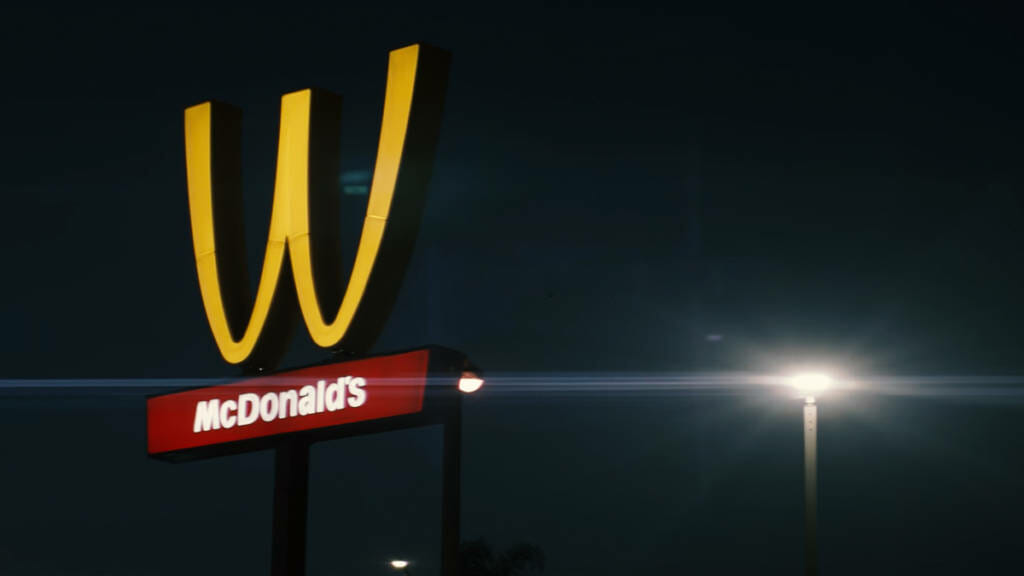McDonald’s flipped its golden arches to stand for the “W” in “women” on Thursday, a gesture of appreciation for its female employees. While some applauded the move, others used the opportunity to demand the quick service restaurant provide a living wage to its employees.
The McDonald’s restaurant in Lynwood, California, turned its golden arches upside down in honor of International Women’s Day. The gesture was made by franchisee Patricia Williams, who owns 18 McDonald’s restaurants alongside her two daughters.
Today, we flip our Golden Arches to celebrate the women who have chosen McDonald's to be a part of their story, like the Williams family. In the U.S. we’re proud to share that 6 out of 10 restaurant managers are women. https://t.co/6z88OhjXpO pic.twitter.com/hXfOi3wWQf
— McDonald's (@McDonalds) March 8, 2018
Williams’ story and logo inversion are part of a bigger campaign around International Women’s Day. McDonald’s has flipped its logo across all digital channels, and 100 restaurants will have special packaging, crew shirts and hats and bag stuffers as part of a nationwide effort.
In a prepared statement, McDonald’s Global Chief Diversity Officer Wendy Lewis said the move was to “honor the extraordinary accomplishments of women everywhere, and especially in our restaurants.”
The restaurant brand claims that six out of 10 managers in their employ are female.
While some appreciated the gesture, many others did not, calling the restaurant’s efforts “McFeminism”—a term that refers to the hollow efforts of a corporation to appeal to women. The quick service restaurant has long been under fire for paying its employees minimum wage, a fact that many consider counter-intuitive to helping women. Workers have demanded a living wage—equal to the basic cost of living expenses plus an “acceptable” comfort level, a relative term the definition of which is often up for debate.
McDonalds: In celebration of women we are flipping the arches upside down.
Or you could give your employees better benefits.
McD: Look it's a W!
Maybe a living wage? Better family leave? A career path forward in the face of automation?
McD: The W stands for women.
— bogwolf (@truebe) March 7, 2018
“This empty McFeminism has nothing to do with women’s liberation and everything to do with McDonald’s attempt to sanitize its image,” Laura Parker, national coordination for British left-wing group Momentum, said in a video response. “If they actually cared about women, they’d pay their workers a living wage and stop forcing them onto zero-hours contracts.”
Brands across the country took to social media with shoutouts to their female employees or characters from fictional heroes across TV, film and video games to real-life public figures, like video game developers and NASA’s crack team of women scientists.
In the marketing world, Creative Equals—a non-profit organization that champions diversity in creative industries—released a campaign that reimagines famous logos as women. Gender-bending iterations include Green Giant, DreamWorks, BAFTA and Bic.
14% of creative directors are women. Here's to more women on International Women's Day. #IWD2018 #WomensDay #sharethespotlight #creativeequals pic.twitter.com/7RAGuhbGEl
— Creative Equals (@CreativeEquals) March 7, 2018
Just 11.5 percent of design directors are women, and that goes for 14 percent of creative directors, Creative Equals says, explaining why so many famous brand icons are male.
International Women’s Day sparks discussion about equality and gender identity this week as hundreds of thousands of professionals head to SXSW in Austin, Texas. The holiday comes during a turbulent time of #MeToo and #TimesUp movements that empower women across film and other industries against sexual harassment and assault. As women members of the film industry flock to Austin this week for SXSW, there will plenty of panels and events to educate and empower.
For those readers in attendance, John Hardy is hosting a party to celebrate the holiday at the Four Seasons Terrace March 11.

